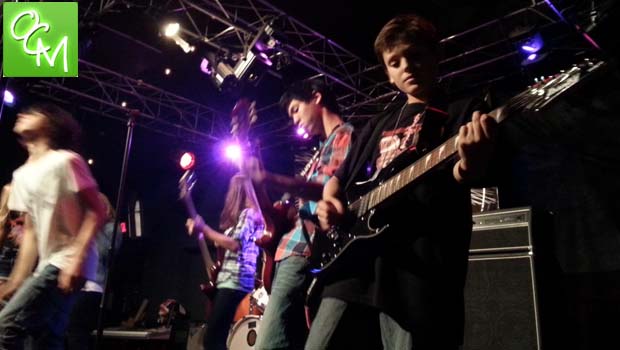Social Challenges for Children with ADHD – How Parents Can Help By Dr. Laura Fadell. When we think of children with ADHD, one of the first things that come to mind is the academic challenge they often encounter. Forgetting to turn in homework, losing assignments, difficulty focusing, and backpacks and desks that look like a tornado has just hit are common. However, children with ADHD can also have a variety of peer relation problems. For example, research has shown that a significant number of children in elementary school with ADHD report they do not have anyone in their class they consider a “good friend.” For those children who do report having a good friend, this is usually limited to just one child. In fact, a recent study in the Journal of Abnormal Child Psychology found that many children with ADHD experience peer rejection within as little as one day of contact.
Social Challenges for Children with ADHD – Challenges
So what are friendships like for many children with ADHD? First, they tend to be characterized by more conflict and less support than the friendships of children who do not have ADHD; and are more sporadic (i.e., “on again, off again”). Children with ADHD often cannot consider the needs of the friend as they can easily become overwhelmed with thinking about and/or doing more than one thing at a time – and unacknowledged friends do not stick around for long. Second, children with ADHD have trouble reading and interpreting simple social cues necessary to engage in reciprocal social interactions with friends. Perhaps the friend is bored and wants to play a new game. Unfortunately, because children with ADHD are often inattentive, they can miss the social cues (e.g., looking bored, drifting away from the action, talking to another peer nearby, etc.). Third, children with the impulsive and hyperactive symptoms of ADHD can be unpredictable. Sudden movements, grabbing toys, not observing the personal space of others, loud talking, blurting out, and interrupting all tend to alienate other children and contribute to a negative reputation among peers. Last, children with ADHD also often suffer from co-occurring anxiety, depression, and oppositional behaviors. These additional challenges only compound their difficulties with peers.
Because ADHD is so common, it is likely that we all know of a child who is struggling with these social difficulties. However, it is also likely that we know of a child with ADHD who is doing well socially. Parents, be assured that having ADHD is not a social death sentence! What it does mean is that there are many children out there with ADHD who need help navigating the social demands of friendship. And you can help. Taking the time to invest in your child’s social growth is a wonderful way to mentor your child as well as shift your parent-child interactions toward a more collaborative, insightful team-building experience.
In a recent edition of the CHADD publication Attention, Amori Yee Mikami, PhD provided these suggestions for parents to help with the social challenges for children with ADHD
OAKLAND COUNTY MOMS FAMILY HEALTH ARTICLES
Social Challenges for Children with ADHD – Tips to Help
- Build on a positive parent-child relationship by spending time with just you and your child alone; pick your battles wisely; and be empathetic when your child is upset. By doing these, your child will be more likely to listen to your constructive feedback.
- Give friendship feedback and keep the ratio of positive to negative feedback about 4:1. This ensures that you put enough “in the bank” to make a “withdrawal.” Your feedback should be positive starting at twenty-five percent correct. This will encourage your child to strive for a hundred percent. And don’t spoil the praise by putting in a “but”! This can be addressed a little later – let your child revel in their praise for a little while.
- Identify good potential friends that are same-age peers and who seem inclined to already like your child. Because children with ADHD miss social cues, their judgment about who is or is not a good friend may be compromised.
- Arrange fun playdates for elementary age children, as these are what deepen and solidify friendships for this age group. One or two high-quality, supervised playdates per week is suggested.
In coaching parents of children with ADHD, I also suggest the following to help your child succeed socially include: Observe your child interacting with friends so you can identify problems before they become too big. Do this several times so you can detect whether a pattern exists (e.g., certain environments, a particular peer, time of day, etc,). Enroll your child in a team sport of some kind. This will help enable him or her to develop team-building and collaborative skills that can be generalized to other situations such a working with a group of students on a school project. And always help to build your child’s self-esteem. This is an area that is of utmost importance due to the overwhelming amount of negative feedback received by many children with ADHD. Indeed, children with ADHD can enjoy healthy and satisfying social relations, sometimes they just need a little help from the important adults in their lives.
ABOUT DR. LAURA FADELL
Services offered by Dr. Fadell include individual, family and couples therapy (ages 5 through adult); cognitive therapy for weight loss and maintenance; women’s issues; and psychological testing for ADHD and learning challenges. Dr. Fadell is in private practice in Bloomfield Hills and on staff at St. Joseph Mercy Hospital. Visit www.drfadell.com for more information.
See related posts below for more from Dr. Fadell.
Social Challenges for Children with ADHD article orginally posted in 2011.


